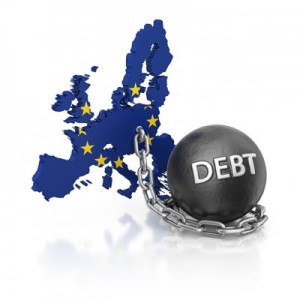 Brussels has always had a bum rap in Europe. Brussels is that faraway place where decisions are made over the heads of people. Brussels is considered undemocratic and technocratic, and is contrasted unfavorably with the familiar closeness of national politics. In the past 40 years or so, selling the EU to the public has often been a matter of arguing that the EU is a vehicle of national prosperity, rather than pointing to the inherent value of a peaceful and integrated Europe. And now, at a time when the euro sorely needs more Europe to survive, national prosperity is hurting and the EU’s popularity is at an all time low.
Brussels has always had a bum rap in Europe. Brussels is that faraway place where decisions are made over the heads of people. Brussels is considered undemocratic and technocratic, and is contrasted unfavorably with the familiar closeness of national politics. In the past 40 years or so, selling the EU to the public has often been a matter of arguing that the EU is a vehicle of national prosperity, rather than pointing to the inherent value of a peaceful and integrated Europe. And now, at a time when the euro sorely needs more Europe to survive, national prosperity is hurting and the EU’s popularity is at an all time low.
To use an example from relatively euro-skeptic Denmark: In the referendum leading up to Denmark’s decision to join the EU (then EC) in 1972, the point was hammered home that the Danish social system needed an open and integrated European market to finance itself. No EU, no welfare state. In later EU referendums (1986/1992/1993/1998/2000), a pattern emerged. While the “yes” side consisted of the established political parties, business interest organizations and the like, the “no” side consisted of grassroots organizations and fringe parties who, at least in the eyes of euro-skeptics, represented the spontaneous, “authentic” will of the people. The former would point to the economic benefits connected with membership, and the latter would point to the loss of sovereignty and democratic accountability.
In Denmark, the pro-EU side never quite got rid of the image of a movement favoring the elite. A “yes” narrative based on abstract common, democratic European values was not attempted. Neither were the democratic elements of the EU’s structure effectively highlighted or developed. Although unfortunate, a narrative of a democratic, socially responsible EU would not fly among Danes, and leaders looking for ways to convince skeptic voters knew it. The Danes, like other European peoples, consider their system to be better. The paradox is, that while lamenting the EU’s democratic deficit, a more democratic EU is feared, as it will give Brussels too much power and drown out national specific societal constructions.
In short, in the eyes of Europe’s citizens, the EU has, in spite of its ever growing political super structure, been all about the national economic and social benefits that could be reaped from an integrated Europe. Viewed from this perspective, it is hardly surprising that while the EU has been bestowed with impressive power in matters related to trade policy, member states are far more reluctant to yield control over areas such as foreign- and fiscal policy.
So, while Europeans in the past perceived a relationship between more EU and growing prosperity, mainly as a result of open and integrated markets, they accepted expanded integration. Currently, with tabs being paid with taxpayers’ money and austerity measures being doled out, this relationship is difficult to perceive. Instead, the EU is viewed as the harbinger of hardship. Austerity measures are the order of the day, and although these measures quite possibly make a recession more likely, they are preferred to sky high interest rates on lending that are the alternative.
To restore confidence in the eurozone and ensure sustainable financing for ailing euro economies, the market must be convinced that money is safe in Greek, Italian, Spanish, Portuguese, (and French?) bonds. It has become obvious from the endless string of crisis measures that the markets will not been impressed with half-hearted policies. Treaty changes aimed at fiscal integration will be needed, and guarantees backed by the entire eurozone must be given to creditors. It remains to be seen if these necessary measures will be acceptable to Europe’s constituents, in particular the Germans and British.
Arguably, the lack of popular support for deeper political and fiscal union is the price to be paid for the functional approach to integration followed by Europe. According to functional integration theory, political union would automatically follow economic union in a “spill-over” effect. However, the functional approach has neglected the development of an overarching vision for EU that goes beyond the purely material. The EU does not stir much emotion among its citizens, least of all a feeling of solidarity with people of a different nation. This has made rescuing the euro difficult for politicians who naturally must keep an eye on the mood of their constituents. Just ask Merkel.
It seems that if the euro is to be saved, further integration will take place in a top-down fashion. This will perhaps save the currency, but will it secure the long-term democratic credibility of EU governance? After all, it is precisely the lack of democratic accountability and concurrent distrust in EU institutions that laid the groundwork for a flawed common currency completely lacking any political oversight. In the longer term, Europe must prove willing to transplant democratic political life to the EU level. Such a move will provide Europeans with democratic governance while providing leaders with a mandate to secure the euro and the future prosperity of the continent.